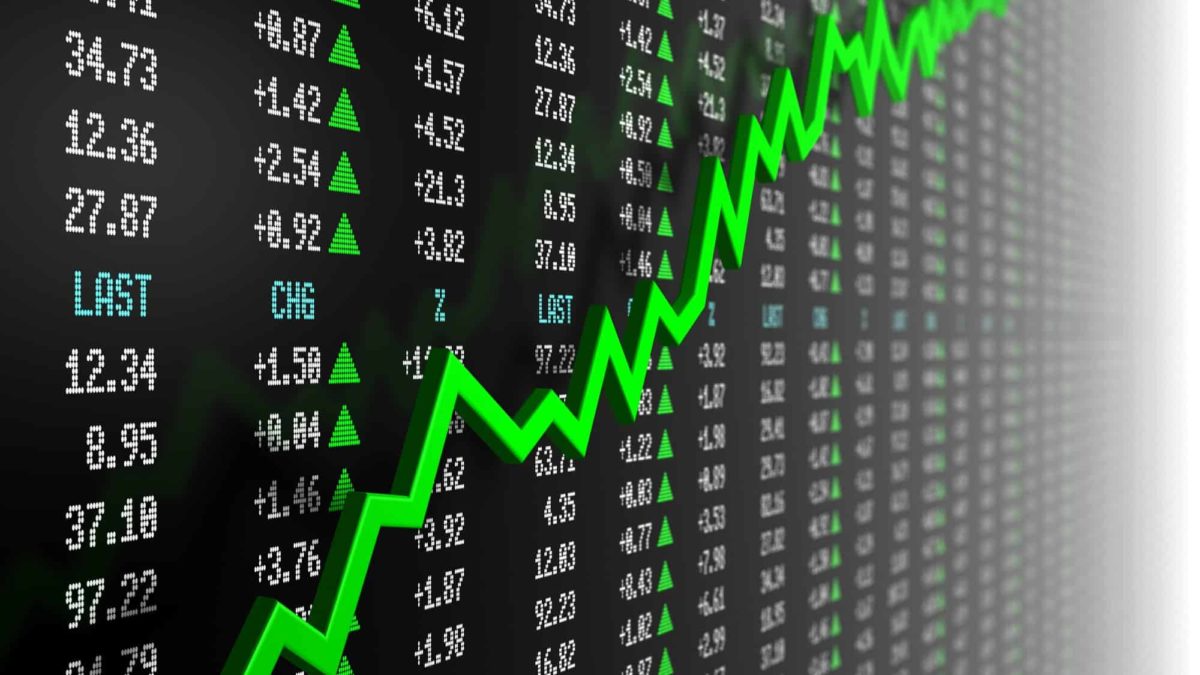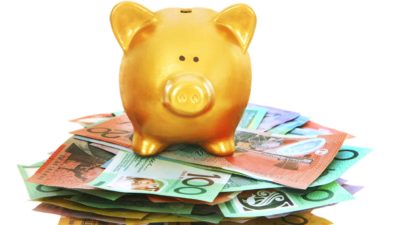Half the country is in lockdown.
And yet, the ASX hit an all time high yesterday.
What gives?
Don't they know about COVID?
Haven't they seen the retail sales numbers?
Don't they know many economists are now predicting the economy to shrink this quarter?
(And that a small handful of them have dared say 'double dip recession' out loud?)
Even the PM felt it necessary to tell us we wouldn't go into recession, answering a question no-one actually asked.
And — I repeat — the ASX hit an all time record close yesterday afternoon.
Whatever the market's on, I want some!
Except that, yep, I jest.
I know what the market's on.
I'm on it too.
The good news? It's legal.
And far from having negative side effects, I reckon these are side effects you should line up for.
Now, we know investors tend to be way too short-term in nature. So I want to share some maths, to help you avoid the groupthink that often derails markets.
Those maths were spelled out, clearly, by one of the doyens of investing; Wharton professor, Jeremy Siegel in a podcast last year:
"I even said, let's go terrible, this is so bad, it wipes out hundred percent of S&P earnings. But let's assume in 2021 we get back to only 2019 levels, stock market should go down five, six percent. I think that's what the math shows."
That fall in profits — spoiler alert — didn't happen.
That didn't stop the market falling a ridiculous 38% at one point, of course. I told you to stay the course, and even keep buying.
I hope you did.
But that is in the past.
I tell the story to explain the current highs.
It seems an almost-certainty that, despite current lockdowns impacting half of the country, life will again return to normal at some point.
Not as soon as we'd like, of course.
But it'll get there.
And when it does?
You really reckon the economy will be permanently harmed, never again to grow?
Nah, me either.
And so, with a little hindsight to help, investors seem to be getting this one roughly right.
And that's why the ASX is hitting new highs.
Those side effects I mentioned earlier?
Well, optimism, for a start. The benefit of history, for those who care to learn from it.
The reminder that, every single time in modern history, 'this too shall pass' has lead to larger economies, more profitable companies and, well, human progress.
How are those for some positive side effects?
Of course, while many worried when markets were falling, there's the 'equal and opposite' reaction when markets are high: "Shouldn't we wait for a fall?"
I hope, dear reader, you see the problem here.
If you're not going to buy when markets are falling, and not going to buy unless markets are falling… well, that doesn't give you much, does it?
In the meantime?
In the meantime, the ASX has gained around 9% per annum, over the last 30 years, according to fund manager Vanguard.
While people were worried about tops and bottoms, rises and falls, booms and busts… the bigger picture shows a slow, steady grind — punctuated with short bursts of excitement and despair — higher.
And higher.
And higher.
One hypothetical $10,000 investment, made 30 years earlier, was worth $130,000 on June 30 last year. (The market is up even more, since then, but we'll have to wait for Vanguard's updated chart, hopefully out in the next month or so, to see that impact!)
And that $130,000 assumes you didn't add a single, extra, dollar.
If you did?
Well, you can imagine what you might have today.
Or, put another way, cast your mind back to 1990 (if you don't remember 1990, you have my eternal envy!).
It was the eve of the early 1990s recession. There were plenty of reasons not to invest.
Indeed, in the first year or so of our 30 year period, shares fell.
Hard.
And yet, they recovered to turn $10,000 into $130,000.
Oh sure, with hindsight, I can tell you exactly when you should have invested, and not.
But I know this with absolute certainty.
Had I been doing this gig in 1990, I would have told you to invest.
Would I have been wrong?
In the short term, it might have seemed so.
In the fullness of time?
Well, if you'd invested $10,000 at the time, and didn't want that $120,000 profit over the subsequent three decades, I'd have happily taken it off your hands.
If that's 'wrong', then I hope I'm wrong a lot more.
Oh, people will tell me to time the market.
They'll say I should wait for this indicator or that.
They'll tell me the market is too high (I know… it's happened every year of the past 10 I've been in this job!).
They'll assume they're smarter than me.
Than the market.
Than history.
That's okay. They're welcome to it.
Me?
I'm going to remain fully invested.
I'm going to ride the waves.
I'm going to cop losses on the chin (but I'll be adding regularly, so I'll get some bargains at the same time!).
I'm not going to try to outsmart the market.
I'm not going to try to predict the unpredictable. (Even the very idea is crazy, when you think through the logic.)
I'm just going to invest.
And keep investing.
I'm going to look for attractive businesses at attractive prices.
(If you prefer to just add money regularly to broad market ETFs, that's cool, too.)
I'm going to add money regularly.
And I'll watch the pundits with equal measures of amusement and exasperation.
The former, because it's just funny.
The latter, because I know it'll often lead people astray.
If this reminds you of the Tortoise and the Hare, you're on the right track, by the way.
Oh, and I'll keep writing these pieces.
Because I've benefited from the very same knowledge.
And I want to pay it forward.
Have a great weekend.
Fool on!









